Leasing Vehicles: Pros, Cons, and How to Find the Best Deal

In today's fast-paced world, transportation has become more crucial than ever. When it comes to acquiring a vehicle, leasing is an increasingly popular option. This article will dive deep into the world of vehicle leasing by discussing its pros and cons and providing you with tips on how to find the best deal.
What is Vehicle Leasing?
Vehicle leasing is a contractual agreement between a lessee (the person leasing the vehicle) and a leasing company (the lessor). The lessee pays a monthly fee to use the vehicle for a specified period, usually between 24 to 60 months. At the end of the lease term, the lessee has the option to purchase the vehicle, extend the lease, or return the vehicle and lease a new one.
The Pros of Leasing a Vehicle: Top Benefits to Consider
Leasing a vehicle has become an increasingly popular option for drivers who want flexibility and lower monthly payments. There are several advantages to leasing a vehicle that you should consider before deciding whether it's the right choice for you. In this section, we will explore the top benefits of leasing a vehicle to help you make an informed decision.
- Lower Monthly Payments
One of the primary benefits of leasing a vehicle is that it often comes with lower monthly payments compared to financing a car purchase. When you lease, you are only paying for the vehicle's depreciation during the lease term, rather than the entire purchase price. This means that your monthly payments will be more affordable, allowing you to budget for other expenses or even drive a more luxurious vehicle than you could otherwise afford.
- Drive Newer Vehicles
Leasing a vehicle allows you to drive a brand-new car every few years. This means you can take advantage of the latest technology, safety features, and fuel efficiency advancements without having to commit to long-term ownership. Additionally, driving a new vehicle can provide a sense of pride and satisfaction that comes with having the latest and greatest on the road.
- Warranty Coverage
Most lease agreements coincide with the manufacturer's warranty period, which means you won't have to worry about paying for significant repairs during the lease term. This can provide peace of mind, knowing that any mechanical issues will be covered under warranty. Plus, since you'll be driving newer vehicles, you're less likely to encounter severe issues in the first place.
- Tax Benefits
For business owners, leasing a vehicle can provide tax advantages. In many cases, the lease payments can be tax-deductible as a business expense, which can help reduce your overall taxable income. Make sure to consult with a tax professional to understand how leasing a vehicle can benefit your specific business situation.
- No Long-term Commitment
Leasing a vehicle allows you to avoid long-term commitment. At the end of the lease term, you have the option to purchase the vehicle, extend the lease, or return the vehicle and lease a new one. This flexibility is ideal for those who like to change cars frequently or are unsure of their long-term vehicle needs.
- Easier Approval Process
Compared to financing a vehicle purchase, the approval process for leasing is often less stringent. If you have less-than-perfect credit, you might find it easier to get approved for a lease. However, keep in mind that those with lower credit scores may face higher interest rates and less favorable lease terms.
The Cons of Leasing a Vehicle: Potential Drawbacks to Consider
While leasing a vehicle comes with its fair share of advantages, there are also some potential drawbacks that you should consider before signing a lease agreement. In this section, we will delve into the cons of leasing a vehicle to help you make a well-rounded decision about whether it's the right choice for you.
- Limited Mileage
One of the most notable downsides to leasing a vehicle is the mileage cap that comes with most lease agreements. Leases typically include a limit of 10,000 to 15,000 miles per year. If you exceed this limit, you'll face additional fees, which can be costly. If you have a long commute or frequently take road trips, leasing may not be the best option for you.
- No Ownership
At the end of a lease term, you won't own the vehicle. While this offers flexibility in terms of switching cars, it also means you won't have any equity in the vehicle. If you decide to buy the car at the end of the lease, you'll likely end up paying more than if you had purchased it from the beginning.
- Potential for Extra Costs
Leasing a vehicle comes with the responsibility to maintain its condition. Lessees are responsible for any excessive wear and tear or damages to the vehicle. At the end of the lease term, you may face additional fees if the vehicle isn't in satisfactory condition, as determined by the leasing company. To avoid these charges, you'll need to keep the car in good shape throughout the lease term.
- Lack of Flexibility
Ending a lease early can be costly, as you may face penalties for breaking the contract. If your circumstances change and you no longer need the vehicle or want to switch to a different car, you might find it challenging to get out of the lease without incurring substantial fees. This lack of flexibility can be a significant disadvantage for some drivers.
- Higher Insurance Costs
Leased vehicles often require higher insurance coverage levels, which can lead to increased insurance premiums. Since the leasing company owns the vehicle, they want to ensure that their asset is adequately protected. As a result, you may be required to carry higher liability limits and comprehensive and collision coverage, which can increase your overall insurance costs.
- Less Freedom to Customize
When you lease a vehicle, you have limited freedom to customize it to your liking. Leasing companies typically don't allow major modifications or alterations to the vehicle, as they want to ensure its resale value at the end of the lease term. If personalizing your vehicle is important to you, leasing may not be the best option.
How to Find the Best Lease Deal: Expert Tips for a Great Bargain
When it comes to leasing a vehicle, finding the best deal can save you a significant amount of money over the lease term. However, navigating the leasing process can be overwhelming for many drivers. In this section, we will share expert tips on how to find the best lease deal, ensuring you get the most value for your money.
- Research
Start by researching various makes and models that fit your needs and budget. Use online resources to compare lease deals and incentives offered by different dealerships. Read reviews and gather information about the vehicles you're interested in, including their reliability, safety features, and fuel efficiency. This research will provide a solid foundation for negotiating the best deal.
- Negotiate
Just like purchasing a vehicle, you can negotiate the terms of your lease. Focus on factors like the capitalized cost (the vehicle's price), the residual value (the vehicle's value at the end of the lease), and the money factor (the lease's interest rate). Don't be afraid to haggle and make counteroffers until you reach a mutually beneficial agreement.
- Check Your Credit
A higher credit score can help you secure a better lease deal, as leasing companies often offer lower interest rates to those with good credit. Before beginning the leasing process, check your credit score and address any issues that could negatively impact your ability to secure favorable terms. Taking the time to improve your credit can lead to substantial savings over the life of your lease.
- Shop Around
Contact multiple dealerships to gather quotes and negotiate the best deal. Don't be afraid to walk away if the terms aren't favorable. Let dealerships know you're shopping around and considering multiple options, as this can motivate them to offer a more competitive deal. Shopping around can lead to significant savings, so don't settle for the first offer you receive.
- Timing
Leasing a vehicle at the end of the month, quarter, or year can lead to better deals, as dealerships might be more motivated to meet sales targets. Additionally, consider leasing during promotional periods, such as holiday sales events or when new models are being released, as manufacturers may offer special incentives to move older inventory.
- Leverage Trade-In Value
If you're trading in a vehicle as part of the leasing process, ensure you negotiate a fair trade-in value. The trade-in value can be used to lower the capitalized cost of your lease, which will, in turn, reduce your monthly payments. Do your research to understand the market value of your trade-in vehicle, and don't be afraid to negotiate for the best possible value.
- Review the Contract
Before signing any lease agreement, carefully review the contract to ensure you fully understand the terms and conditions. Look for hidden fees, such as acquisition fees, disposition fees, and excess mileage charges. If you're unsure about any aspect of the lease, don't hesitate to ask questions or seek clarification.
Conclusion
In the fast-paced world we live in, transportation plays a crucial role in our daily lives. Vehicle leasing has emerged as a popular option for those who value flexibility and lower monthly payments, offering numerous benefits such as driving newer vehicles, warranty coverage, tax advantages, and more. However, it's essential to be aware of the potential drawbacks, such as limited mileage, lack of ownership, additional costs, and less customization freedom.
By considering both the pros and cons, you can determine if leasing is the right choice for you. To find the best lease deal, follow our expert tips: research, negotiate, check your credit, shop around, time your lease strategically, leverage your trade-in value, and review the contract thoroughly. By taking these steps, you'll be well-prepared to navigate the leasing process and secure a favorable agreement that meets your needs and budget. In the end, the right decision will depend on your individual circumstances, preferences, and financial situation.












